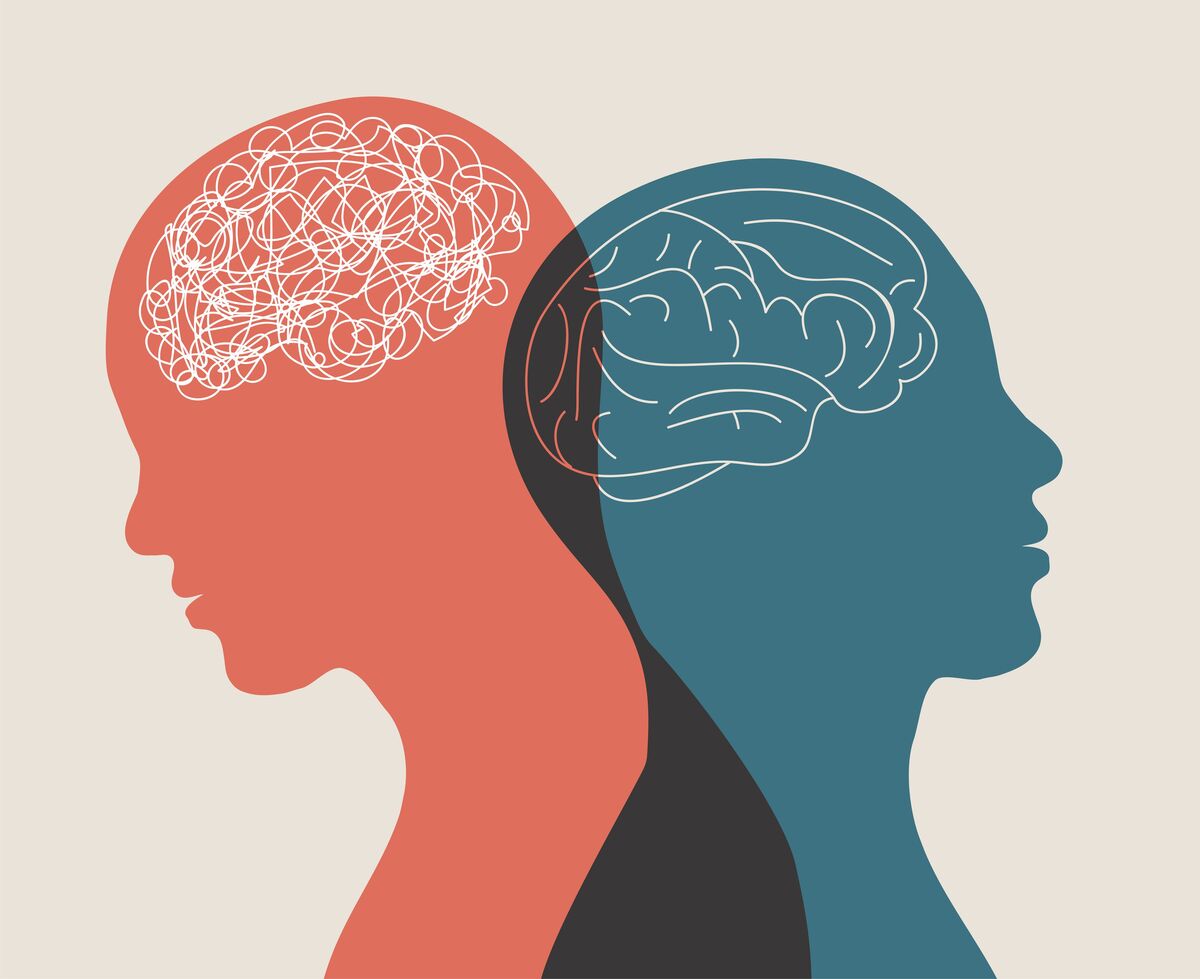Many people with substance abuse disorders also have mental health issues, and vice versa. This is referred to as “dual diagnosis,” or sometimes “co-occurring disorders” or “co-morbidity.” It is not the same as having two separate issues—the disorders are related because they involve behavioral problems and emotional issues and usually feed on each other.
Dual Diagnosis Statistics & Facts
According to the 2020 National Survey on Drug Use and Health, 17 million adults had a substance use disorder and a mental illness. Substance use disorders and mental health conditions share environmental risk factors, such as stress and trauma. Research shows that genetic factors may play a role since both problems run in families.
No matter the root causes, experts say that mental health conditions can lead to substance use through self-medication with alcohol or drugs, and substance use can lead to mental health conditions by changing brain chemistry or the mental and emotional state of the user. Often, these conditions feed on each other in a vicious downward spiral.
Common Co-Occurring Disorders
The most common mental health disorders that co-occur with substance abuse include:
- Anxiety
- Depression
- Bipolar disorder (manic depression)
- Schizophrenia
- PTSD
Addiction and mental illness are difficult to overcome, but when they occur together, they are an even bigger challenge. People suffering from dual diagnosis will generally need specialized treatment programs for co-occurring disorders.
Healthy Ways To Navigate The Challenges Of Dual Diagnosis
Here are a few thoughts that may help you navigate dual diagnosis challenges.
- Seek help
The first step is to seek help. Find a provider willing to listen and understand how the diagnoses affect physical well-being, emotional health, and social life.
- Find a specialized treatment program
Treating co-occurring disorders requires an integrated, holistic approach. Programs designed for dual diagnosis can offer tailored treatment plans for both conditions, providing medical and psychiatric care, addiction counseling, and medication management. Treatment for substance abuse may include detoxification, withdrawal symptom management, behavioral therapy, and support groups. Treatment for mental health issues may include medication, individual or group counseling, self-help techniques, lifestyle changes, and peer support.
- Address both conditions simultaneously
Treating one condition without addressing the other can lead to relapse, so addressing both at once increases the likelihood of successful recovery. If only the addiction is treated, patients may develop other unhealthy coping mechanisms. Likewise, treating the psychological issues alone increases the likelihood of relapse because the patient may believe they are healed and no longer NEED their substance, but use it by choice.
- Use evidence-based treatments
Evidence-based treatments are those that have proven to be effective in treating dual diagnosis. These include cognitive-behavioral therapy to help change unhealthy and ineffective thought patterns, dialectical behavior therapy to help reduce self-harming behaviors like substance use or suicidal thoughts, and motivational interviewing that can help a person understand their goals and values and reach a healthy lifestyle.
- Develop a support system
A support network provides emotional support, accountability, advice, and encouragement, and is essential in maintaining recovery. It can include family, friends, support groups, or a sponsor.
Programs such as Alcoholics Anonymous, Narcotics Anonymous, or Double Trouble in Recovery can help you connect with others who understand what you’re going through.
Along with the official recovery programs, there are several things a dual-diagnosis sufferer can do to help manage daily life.
- Practice self-care
Make healthy lifestyle changes. Exercise is a natural way to reduce stress, relieve anxiety, and improve mood. Relaxation techniques such as mindfulness meditation, progressive muscle relaxation, and deep breathing can reduce symptoms of stress, anxiety, and depression and increase feelings of relaxation and emotional well-being. Eating healthy and getting enough quality sleep can help you feel your best.
- Manage stress without drugs or alcohol by learning healthy coping skills.
Stress management skills can help prevent relapse, and emotional coping skills can help you deal with negative emotions and unpleasant feelings.
- Avoid triggers
Identify and avoid situations that may cause relapse. Triggers can include people, places, situations, or emotions. Developing coping mechanisms to manage these triggers is essential to maintaining sobriety.
- Stay committed to treatment
Actively participating in treatment is essential for achieving long-term recovery. Treatment for dual diagnosis can be lengthy, so it is crucial to remain committed to the process. No matter how well you think you are doing, always follow doctor’s orders and talk with them before making any changes to your medication or treatment routine.
As challenging as a dual diagnosis can be, there is always hope. Both mental health disorders and substance abuse problems are treatable. Relapse is part of the recovery journey—setbacks happen, and people stumble—so learn from it and move on. Recovering from co-occurring disorders is possible, but takes time, commitment, effort, and courage.
Why Choose Rising Phoenix
Navigating the challenges of a dual diagnosis is a complex journey that requires understanding, support, and specialized care. The intersection of mental health and substance abuse can present unique obstacles, but recovery and healing are possible with the right resources and guidance.
Our addiction and mental health treatment program offers a safe, welcoming, and nurturing environment. Our clients are embraced, not judged, throughout their recovery process. If you or someone you love has a dual diagnosis, contact us today to learn more.

